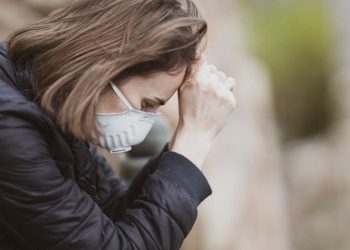According to a study in the United Kingdom, people who wear masks are likely to follow and adopt other protective measures in the coronavirus pandemic, for instance, hand washing.
In the coronavirus outbreak, experts were worried that using face masks might lead to a false sense, and people might ignore hand washing. However, the researchers in their study at the University of Cambridge and King’s College London, United Kingdom, found that people are considerate of the measures to protect themselves and their families from coronavirus.
The study was published in the BMJ Analysis and revealed that more than 160 countries have required wearing masks in indoor areas and public transportation. Moreover, the researchers also analyzed 22 reviews on the impact of wearing masks in viruses like flu.
The randomized controlled trials examined the hygiene of hands, and the findings suggested that wearing masks does not reduce hand sanitizing or handwashing frequency. According to self-reports in the study, people reported frequent hand washing. Co-author of the study, James Rubin from the King’s College stated in a press conference,
“Many public health bodies are concluding that wearing a face-covering might help reduce the spread of coronavirus, and the limited evidence available suggests their use doesn’t have a negative effect on hand hygiene.”
Also Read: Researchers Identify Six Distinct Types Of COVID-19
However, the authors have pointed out that wearing face masks might reduce the spread of COVID-19, as evidence is limited and lacks the support on the use of adverse effects on handwashing. A large body of evidence is required to test the interventions of risk compensation for the concern.
The lead author of the study, Dame Theresa Marteau, implied that the ‘concept’ of risk compensation appears as a threat to the public, rather than the risk itself. And the use of potentially useful interventions to prevent the spread of coronavirus is crucial in the current times.












